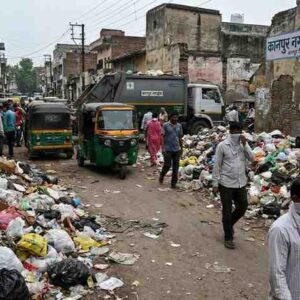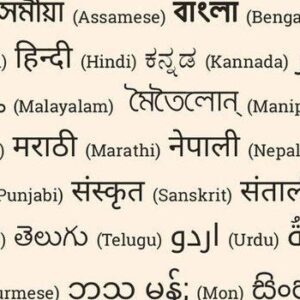Introduction
Uttar Pradesh (UP), with its80 Lok Sabha seats, is a critical battleground in Indian politics. Its political alliances not only determine state-level outcomes but also significantly impact the composition and stability of the central government. Over the years, alliances in UP have proven to be a microcosm of India’s diverse and dynamic political landscape. This article examines how these partnerships influence national stability and governance.
The Significance of Political Alliances in UP
1. A Gateway to Power in Delhi
UP’s sheer electoral weight ensures that political alliances formed here often have national implications.
- Historical Examples:
- The Samajwadi Party (SP)-Bahujan Samaj Party (BSP) alliance in the 2019 General Elections marked a significant attempt to counter the BJP’s dominance, though it fell short.
- The 1993 SP-BSP coalition successfully halted the BJP’s rise in the aftermath of the Babri Masjid demolition, showcasing the strategic importance of alliances.
(Source:ElectionCommissionofIndia)
2. Influencing Coalition Governments
UP’s alliances have historically played pivotal roles in forming coalition governments at the center.
- Key Contributions:
- During the United Front Government (1996-1998), parties like the SP and BSP provided critical support, ensuring government stability despite fragmented mandates.
- The BJP’s alliance with smaller parties in UP, such as the Apna Dal, has bolstered its national seat tally in recent elections.
The Dynamics of Alliances in UP
1. Caste-Based Collaborations
UP’s alliances often revolve around caste dynamics, reflecting the state’s socio-political complexities.
- Key Players:
- The SP, with its Yadav-Muslim base, and the BSP, representing Dalits, have historically joined forces to consolidate marginalized communities.
2. Regional Power Brokers
Smaller parties, such as theRashtriya Lok Dal (RLD)and theApna Dal, wield significant influence in their strongholds, often acting as kingmakers in alliances.
- Example:
- The BJP’s alliance with the Apna Dal in 2014 and 2019 helped it secure dominance in eastern and central UP.
(Source:PRSLegislativeResearch)
3. Ideological Contradictions
Despite their success, alliances in UP are often fraught with ideological contradictions, which can hinder long-term stability.
- Case Study:
- The SP-BSP alliance in 2019 dissolved shortly after the elections due to mutual distrust and differing political priorities.
How Alliances in UP Impact National Stability
1. Strengthening Coalition Governments
UP’s alliances provide critical support for coalition governments, ensuring stability in a fragmented parliamentary system.
- Key Insight:
- The SP’s backing of the Congress-led UPA in 2008 during the nuclear deal crisis exemplifies the role of UP-based parties in bolstering national governance.
2. Shaping National Policy Agendas
By amplifying regional issues, UP’s alliances influence the central government’s policy priorities, particularly in agriculture, rural development, and caste equity.
3. Managing Polarization
UP’s alliances often bridge caste and community divides, promoting social cohesion and reducing political polarization.
- Example:
- The 1993 SP-BSP alliance successfully mobilized diverse communities against communal politics, fostering a more inclusive political narrative.
Challenges to Alliances in UP
1. Short-Termism
Many alliances in UP are forged for electoral gains rather than long-term policy alignment, limiting their impact on governance.
2. Leadership Clashes
Conflicts between alliance leaders often derail collaborations, as seen in the fallout between SP and BSP after the 2019 elections.
3. Public Distrust
Frequent alliance shifts and ideological contradictions can erode public trust in political partnerships.
Strategies for Effective Alliances
1. Focusing on Common Goals
Parties should prioritize shared policy objectives over electoral arithmetic to create sustainable alliances.
2. Transparent Leadership Agreements
Clear leadership roles and responsibilities can minimize conflicts and ensure smoother collaborations.
3. Inclusive Governance Frameworks
Alliances should integrate diverse regional and caste-based concerns into their governance strategies to maintain public support.
Expert Opinions
- Political Analyst’s Perspective:
- “UP’s alliances are critical for national stability, but their success depends on the ability of leaders to navigate ideological and personal differences.”
- Sociologist’s Insight:
- “By bridging caste and community divides, alliances in UP can act as a model for inclusive governance across India.”
(Source:UPGovernmentReports)
Conclusion
Political alliances in Uttar Pradesh are more than state-level collaborations—they are essential building blocks for national stability. By addressing regional aspirations, fostering social cohesion, and contributing to coalition governments, these alliances shape the country’s political trajectory. However, their success depends on sustained collaboration, transparent leadership, and a commitment to governance beyond electoral gains. As UP continues to dominate India’s political narrative, its alliances will remain a cornerstone of national stability and progress.










